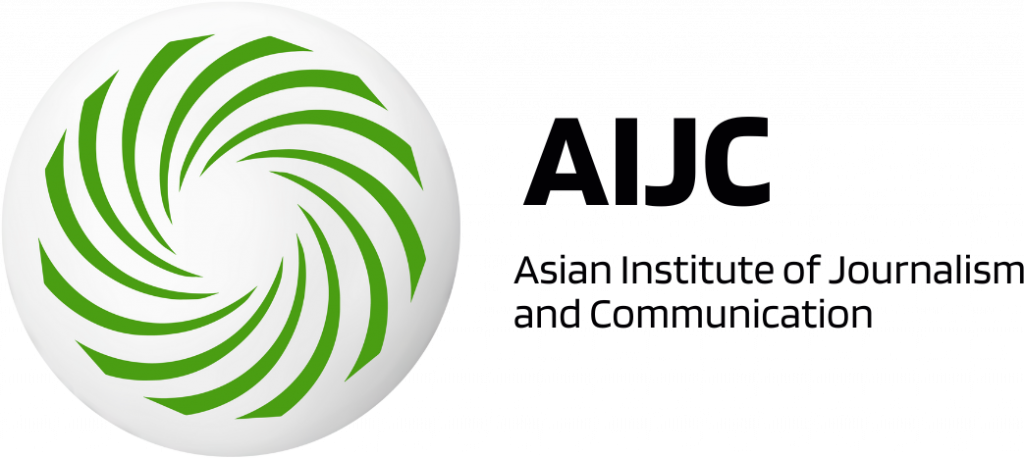Public Official Course
- Specialty Courses
- Fast-Track Courses
- Targeted Spot Courses
- Public Official Courses
Public Course on
Navigating Media Relations: Strategies for Effective Communication
This online training is open to communication professionals seeking to enhance their skills in media relations and strategically position their business or organization for success. Participants will explore key aspects of the media landscape, including organizing press conferences and interviews, and gain valuable insights and practical tips for optimizing their media strategies.
Course Schedules:
January 22-23, 2026, 9:00 a.m. - 5:00 p.m.
Individual Rate: 15,000 PHP
Online Live via


Course Structure
This course delves into the critical relationship between public offices, non-profit organizations, and the journalists who cover them. Understanding journalists not merely as conduits of information, but as a primary audience with distinct needs and expectations, is essential for effective media relations. This course will equip participants with the knowledge and practical skills necessary to build and maintain productive relationships with journalists, ultimately enhancing the visibility and impact of their organizations.
- Overview of the Philippine media landscape
In-depth discussion on the vibrant diversity of the Philippine media, comprising traditional platforms such as newspapers, radio, and television, alongside rapidly growing digital media. These play a crucial role in informing the public and facilitating discussions on national issues.
There will also be a discussion on the political pressure and concerns over media freedom, and how these influence their reporting. Understanding the media landscape and tailoring pitches to the interests of different outlets enhance the likelihood of coverage. - ‘Information as public good’ as framework in media relations
The “information as public good” framework in media relations emphasizes the understanding that information, particularly that disseminated by public offices and non-profits, holds inherent value for the broader public. This perspective moves beyond simply viewing media relations as a tool for organizational promotion, and instead positions it as a vital function for ensuring accuracy, transparency, accountability, and informed civic participation in relation to the people’s right to know.When information is treated as a public good, organizations prioritize the accurate, timely, and accessible distribution of knowledge that serves the public interest, fostering trust and strengthening the relationship between institutions and the communities they serve.By adopting this approach, public offices and non-profits contribute to a well-informed citizenry, which is essential for a healthy democracy. - Principles of public relations
Public relations is built upon fundamental principles that guide effective communication strategies and relationship-building efforts. Key principles include transparency, accountability, consistency, and ethical practices, which collectively promote trust between organizations and their audiences.
- Crafting a media relations campaign
Crafting a media relations campaign involves a strategic process that focuses on building relationships with journalists and media outlets to effectively communicate key messages. The campaign begins with thorough research to identify target audiences and relevant media channels, followed by the development of compelling story angles that resonate with both journalists and the public.
- Media as Part of Your Community: Building Good Relations
Building good relations with the media is vital for any organization, as it can significantly enhance community engagement and strengthen public perception. By cultivating positive partnerships with journalists and media representatives, organizations can foster an environment of cooperation that benefits both parties.
- Best Practices in Media Relations
Discussion on best practices in media relations can equip learners with use cases that demonstrate how to foster productive relationships and achieve communication outcomes. These practices include timely and accurate information sharing, responsiveness to media inquiries, and proactive outreach to build rapport with journalists.
- Maximizing Opportunities for Visibility in Internal and External Events with the Media
Maximizing visibility during internal and external events with media involvement is crucial for organizations looking to enhance their public profile and effectively communicate their messages. This can be achieved through careful planning and strategic engagement before, during, and after events.
Key components include inviting relevant media representatives, offering exclusive interviews, and providing high-quality press materials that highlight key narratives. On-site media management, such as designated areas for interviews or press briefings, can facilitate effective communication.
- Issues management and crisis communication
Maintaining open dialogue and actively managing public perception are essential components that enable organizations to navigate crises effectively and foster positive relationships. Ultimately, media relations aim to create mutually beneficial situations in which organizations engage meaningfully with their communities, thereby enhancing reputation and credibility.
DURATION
Two-Day Study
TIME COMMITMENT
16 Hours
FORMAT
Live Online Classes
DELIVERABLES
Develop a media relations plan
DIFFICULTY
Intermediate
COURSE LANGUAGE
English
CERTIFICATION
Digital Certificate
PLATFORMS
MS Office/Google Suite, Zoom Professional, Viber
What You’ll Learn
By the end of this course, participants will be able to:
* Analyze and adapt to the Philippine media landscape
* Develop and execute a public relations campaign based on the “information as public good” framework
* Cultivate and maintain productive relationships with journalists and manage communication during a crisis.
Course Schedules
- Day 1: January 22, 2026, Thursday. 9 AM to 5 PM
- Day 2: January 23, 2026, Friday. 9 AM to 5 PM
Corporate Rates Available.
Special Packages and Rates are available for your organization.
Course Instructor

Janess Ann J. Ellao is the Associate Director of the Professional Development Program of the Asian Institute of Journalism and Communication. She also sits as chapter head of the International Association of Women in Radio and Television – Philippines. She graduated cum laude with distinction from St. Scholastica’s College – Manila and finished her graduate degree at AIJC.